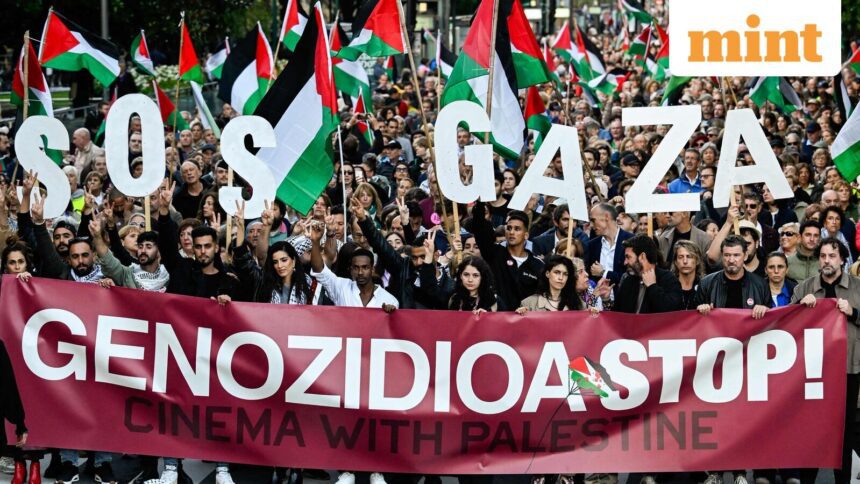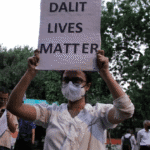Congress Parliamentary Party chairperson Sonia Gandhi has reiterated the need for India to take a leading role regarding the Palestine issue, criticizing the Central government’s approach under Prime Minister Narendra Modi as marked by “profound silence” and a failure to adhere to principles of humanity and morality.
In her article published in The Hindu, Gandhi expressed concern that the Modi administration’s actions seem to be influenced more by the personal relationship between Modi and Israeli Prime Minister Benjamin Netanyahu than by India’s constitutional values or strategic interests. She argued that “this style of personalised diplomacy is never tenable and cannot be the guiding compass of India’s foreign policy.”
This article is Gandhi’s third recent commentary on the Israel-Palestine conflict, in which she has strongly opposed the current government’s stance. Her remarks followed statements from United Nations Secretary-General Antonio Guterres, who emphasized that “statehood for Palestinians is a right, not a reward.”
Gandhi pointed out that India’s formal recognition of Palestinian statehood occurred on November 18, 1988, after a history of support for the Palestine Liberation Organization (PLO). She highlighted recent shifts in foreign policy, mentioning that the UK, Canada, and Australia officially recognized Palestine as a state on September 21, a sign of changing global dynamics as these countries distance themselves from their previous alignment with the U.S. under the Trump administration.
In her article, Gandhi insisted that India’s standing in the world should not be dictated by the aspirations of one individual, nor should it rest on past accomplishments. She referenced France’s recognition of Palestinian statehood as the “first step in the fulfilment of the legitimate aspirations of the long-suffering Palestinian people,” pointing out that over 150 nations in the UN have now done so.
Gandhi also recalled India’s historical commitment to justice, citing its stance against apartheid in South Africa and its support during the Algerian struggle for independence. She clarified that India’s involvement in the Israel-Palestine issue must emphasize peace and the protection of human rights.
Highlighting recent developments, Gandhi stated that the brutal and inhumane Hamas attacks on Israeli civilians on October 7, 2023, were met with an “Israeli response that has been nothing less than genocidal,” with more than 55,000 Palestinian civilians reported killed, including 17,000 children. She emphasized that the infrastructure in Gaza has been devastated, creating a dire humanitarian situation.
Furthermore, Gandhi underscored that India’s response to the Palestine issue should be viewed as a measure of its ethical and civilizational heritage rather than merely a matter of foreign policy. She argued for a sense of historical empathy toward the Palestinian people, who have endured decades of displacement, occupation, and violations of their rights.
Gandhi closed by asserting that silence cannot equate to neutrality and is, in fact, complicity. She appealed for India to actively translate its historical empathy into principled action in support of Palestine, stating that the plight of the Palestinian people resonates with the struggles India faced during its colonial past.










